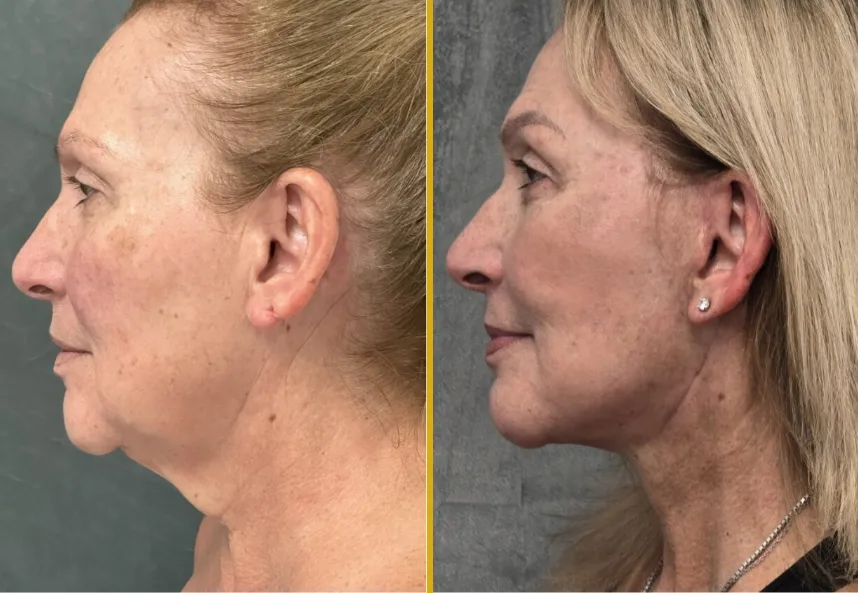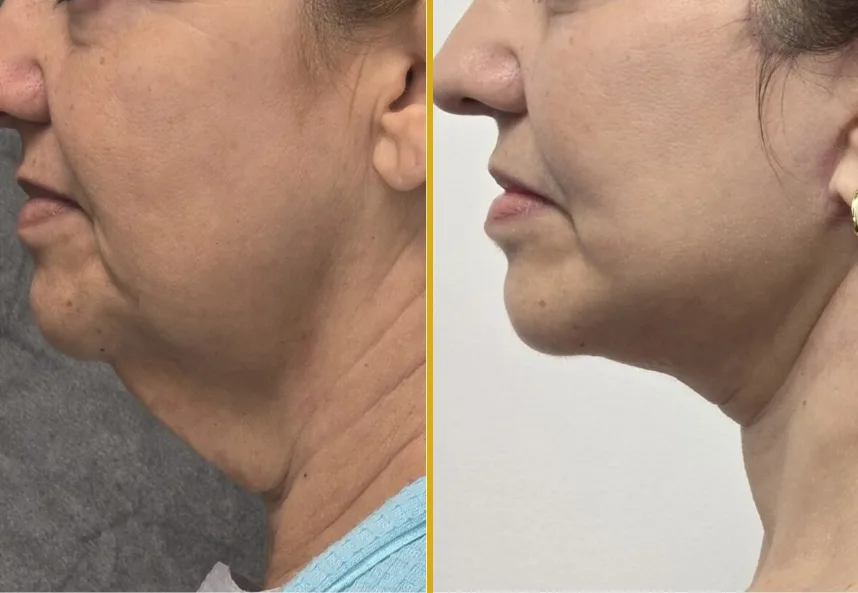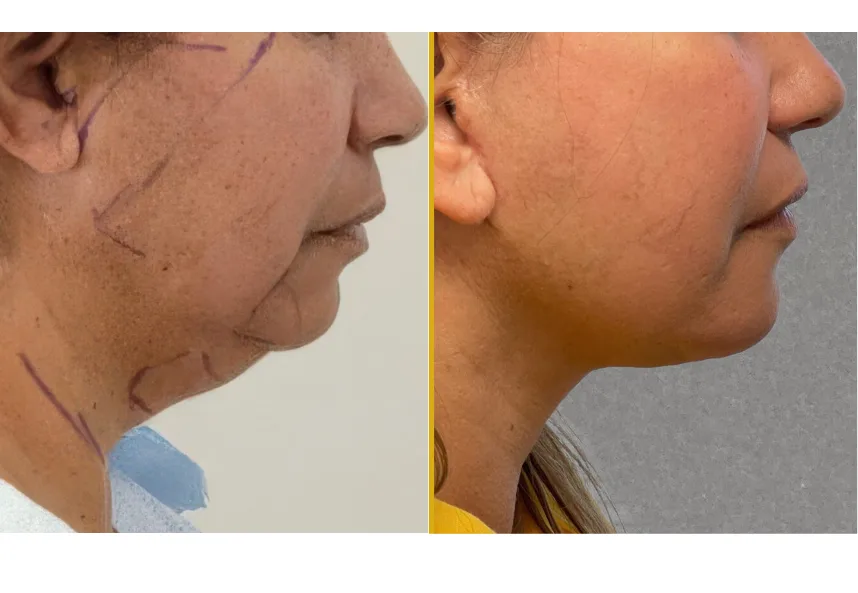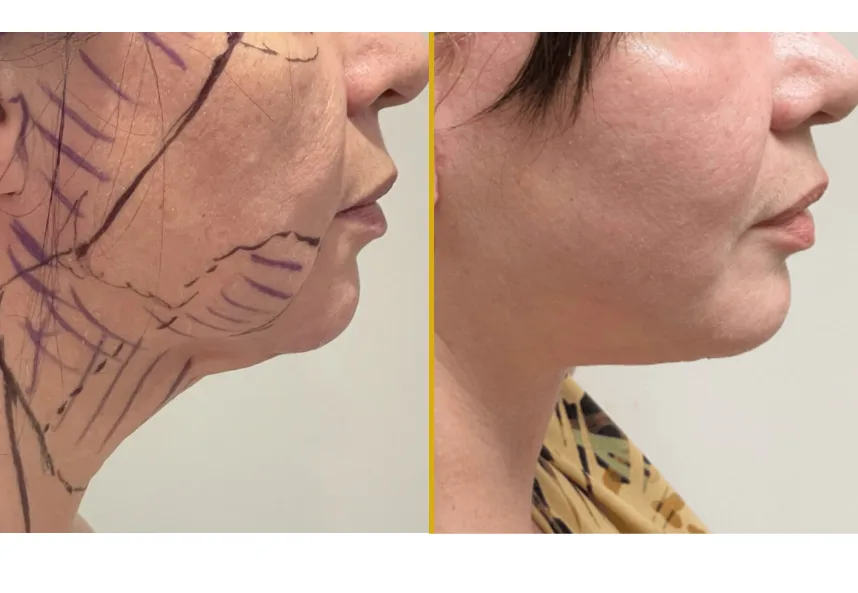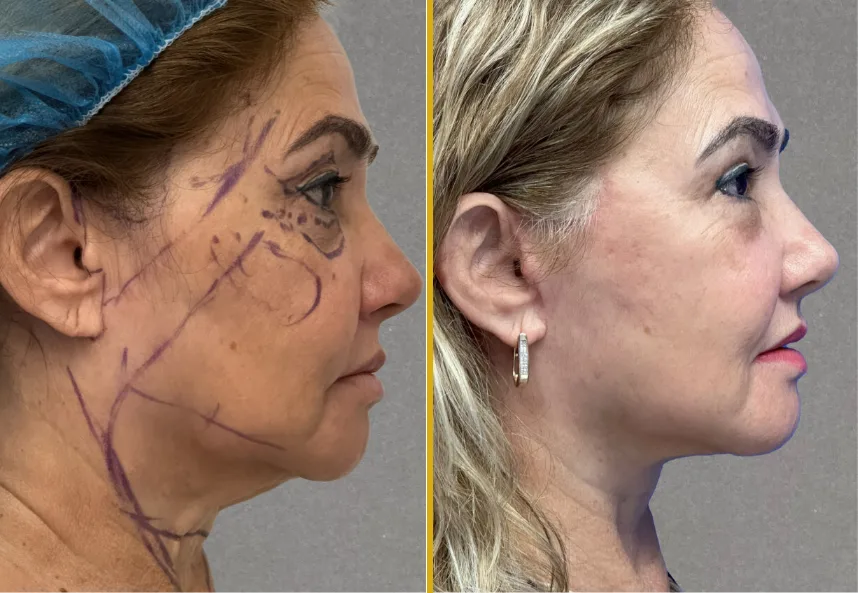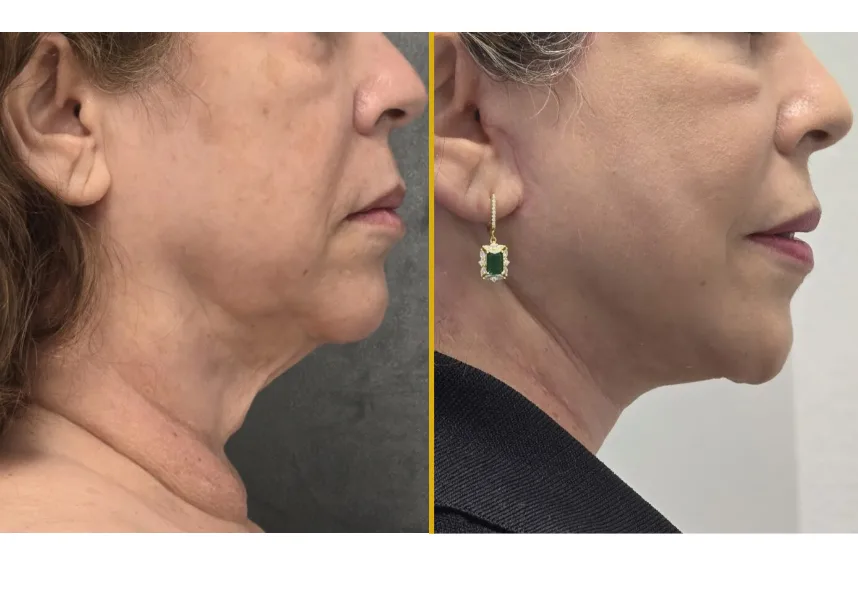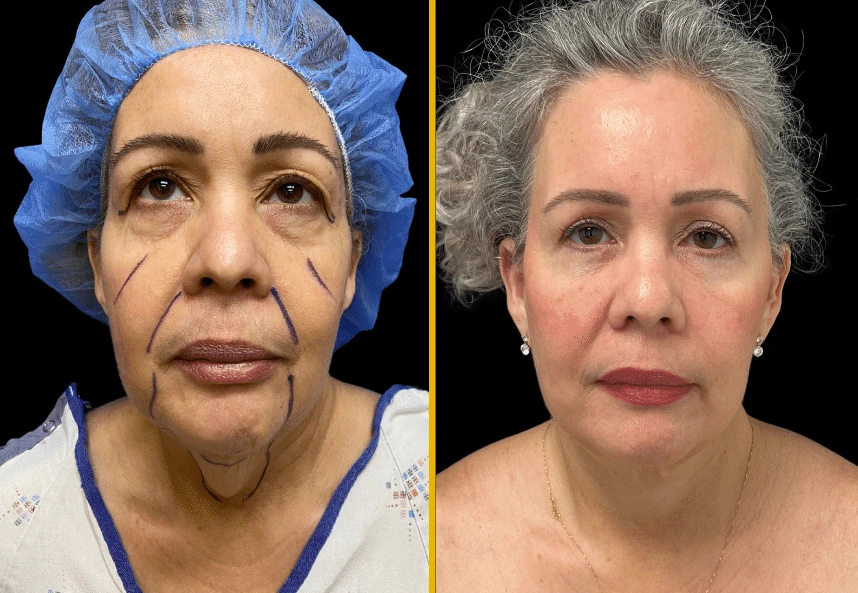How Does Weight Loss Affect Facelift Results?

The Relationship Between Weight Loss and Facial Aging
How Significant Weight Loss Impacts Facelift Outcomes
Skin Elasticity After Weight Loss
One of the biggest factors affecting facelift results is skin elasticity. After major weight loss, skin often loses its ability to contract fully. This may leave behind loose skin in the face and neck that a facelift can remove, but results may depend on how well the remaining skin responds.
Timing Matters
If you are actively losing weight, it is best to wait until you have reached a stable weight before having a facelift. Continuing to lose weight after surgery may cause additional sagging and alter the results. Stability ensures that your surgeon can plan accurately and provide lasting improvements.
Volume Loss in the Face
Weight loss does not only remove fat from the body—it can also reduce natural volume in the cheeks and midface. While a facelift repositions tissues, additional treatments such as dermal fillers or fat grafting may be recommended to restore youthful fullness.
Complementary Procedures for Optimal Results
Patients who have lost a significant amount of weight may benefit from combining a facelift with other procedures for enhanced outcomes. Options can include:
- Neck lift for excess skin or banding under the chin
- Eyelid surgery to refresh the upper and lower eyelids
- Dermal fillers or fat transfer to restore volume in hollowed areas
By addressing multiple concerns together, results appear more balanced and natural.
Preparing for a Facelift After Weight Loss
Achieve a Stable Weight
Surgeons generally recommend maintaining your goal weight for at least six months before scheduling a facelift. This stability ensures that results are predictable and long-lasting.
Focus on Nutrition and Hydration
Good nutrition supports healing. Patients should eat a balanced diet rich in protein, vitamins, and antioxidants to prepare their bodies for surgery.
Discuss Goals in Detail
During a consultation, it is important to communicate both aesthetic goals and medical history. Dr. Askari works closely with patients at Revive Surgery to ensure the treatment plan addresses the unique effects of weight loss on the face.
Emotional and Psychological Benefits
Weight loss often improves confidence and overall health. Pairing it with a facelift can amplify these benefits, helping patients look as vibrant as they feel. The transformation can be especially meaningful for those who have worked hard to reach their health goals and now want their appearance to reflect that achievement.
The Role of an Experienced Surgeon
Facelifts after weight loss require precision and expertise. An experienced surgeon understands how to tailor the procedure to address both skin laxity and volume changes. Dr. Askari combines advanced techniques with individualized care, ensuring that patients achieve results that look natural and long-lasting.
Conclusion
Weight loss can significantly influence facelift results, often revealing areas of loose skin or volume loss that surgery is designed to correct. Patients who have reached a stable weight, maintain healthy habits, and work with a skilled surgeon can expect excellent outcomes.
With the expertise of Dr. Askari and the supportive care at Revive Surgical Institute, patients find that their facelift enhances the results of their weight loss journey. The combination of improved health and refreshed appearance creates a renewed sense of confidence that lasts for years.





